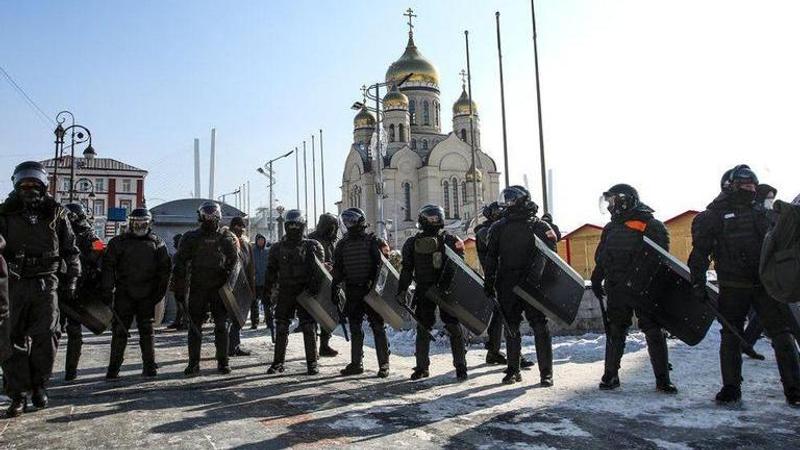Published 19:41 IST, January 31st 2021
US condemns Russia’s 'harsh tactics' as protesters demand Navalny's release
US condemned the “persistent use of harsh tactics” by Russian authorities against journalists and supporters of Kremlin critic Alexei Navalny.

The United States condemned the “persistent use of harsh tactics” by Russian authorities against journalists and supporters of Kremlin critic Alexei Navalny. US secretary of state Anthony Blinken took to Twitter as he wrote, “The U.S. condemns the persistent use of harsh tactics against peaceful protesters and journalists by Russian authorities for a second week straight. We renew our call for Russia to release those detained for exercising their human rights, including Aleksey Navalny”. Hundreds of people have been detained by the police and the number is likely to increase.
Police so far have detained over 2,700 participants across Russia, according to the OVD-Info, a group that monitors political arrests. Earlier, Russian authorities had issued a strong warning against the planned protest. Russian Interior Ministry spokesperson Irina Volk said that participants found violating the COVID-19 preventive measures will face serious charges.
What is happening in Russia?
Navalny had been in Germany for more than five months after he was airlifted to Berlin for treatment following the infamous poisoning case. Navalny was allegedly poisoned last year in August as he fell ill on a flight from Tomsk to Moscow. He was taken to the hospital but Russian doctors ruled out poisoning and put him in an artificial coma. Navalny was flown to Germany from Russia at the request of his family and close aides. German doctors and the government announced days later that Navalny was indeed poisoned using Novichok, a Soviet-era nerve agent.
The poisoning was blamed on the Russian state, which dismissed the allegations and demanded more proof for starting an investigation in the country. Navalny came out of the coma in September 2020 and months later he expressed his desire to return to Russia. Before Navalny's return, Russian prison authorities had issued a warning asking Navalny to return as soon as possible or face jail for violating 2014 suspended sentence terms. When Navalny got back to Russia, he was arrested by authorities, which sparked widespread protests across the country on January 23.
The city of Novosibirsk in eastern Siberia experienced one of the biggest rallies. Thousands were seen marching on the streets and chanting, ‘“Putin, thief!”. In Moscow, authorities have introduced unprecedented security measures. Subway stations near the Kremlin were also closed. Restaurants and stores were also asked to stay shut.
(Image Credits: AP)
Updated 19:41 IST, January 31st 2021




